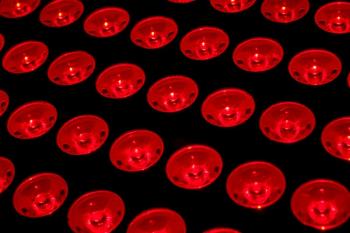
Louisiana will allow ODs to perform certain surgeries
Louisiana Governor Bobby Jindal recently signed into law a bill that will allow optometrists to perform certain surgeries. Louisiana is the third state in the nation to pass such a law.
Baton Rouge, LA-Louisiana Governor Bobby Jindal recently signed into law a bill that will allow optometrists to perform certain surgeries. Louisiana is the third state in the nation to pass such a law.
The bill does not provide a list of approved procedures but rather lists procedures that are still off-limits to ODs, including:
• Retina laser procedures, such as LASIK, PRK, or any form of refractive surgery
• Administration of general anesthesia
• Penetrating keratoplasty, corneal transplant, or lamellar keratoplasty
• Laser or nonlaser injection into the vitreous chamber of the eye to treat any macular or retinal disease
The bill also prohibits a number of nonlaser surgical procedures, including:
• Surgery related to removal of the eye from a living human being
• Surgery requiring full thickness incision or excision of the cornea or sclera other than paracentesis in an emergency situation requiring immediate reduction of the pressure inside the eye
• Surgery requiring incision of the iris and ciliary body, including iris diathermy or cryotherapy
• Surgery requiring incision of the vitreous
• Surgery requiring incision of the retina
• Surgical extraction of the crystalline lens
• Surgical intraocular implants
• Incisional or excisional surgery of the extraocular muscles
• Surgery of the eyelid for the suspect eyelid malignancies or for the incisional cosmetic or mechanical repair of blepharochalasis, ptosis, and tarsorrhaphy
• Surgery of the bony orbit, including orbital implants
• Incisional or excisional surgery of the lacrimal system other than lacrimal probing or related procedures
• Surgery requiring full thickness conjunctivoplasty with graft or flap
• Any surgical procedure that does not provide for the correction and relief of ocular abnormalities
• Injection or incision into the eyeball
• Retrobulbar injection
Optometrists will be able to perform YAG laser capsulotomy, iridotomies, and selective laser trabeculoplasty, among other common procedures. The bill also allows optometrists to prescribe Schedule III drugs. James Sandefur, OD, excutive director of the Optometry Association of Louisiana, told Optometry Times the state’s ODs have been working to pass this bill for three years.
According to Dr. Sandefur, fewer than half of the parishes in LA have ophthalmologists, but nearly all parishes have an optometrist’s office. The new law will allow patients to have easier access to eye care, Dr. Sandefur says, especially for patients in rural areas.
“This will give patients a choice. Ophthalmologists have had a monopoly on these procedures. And this won’t prevent them from going to an ophthalmologist, but it gives them a choice,” says Dr. Sandefur.
Louisiana ODs will have to undergo further education and training established by the Louisiana State Board of Optometry Examiners in order to perform expanded therapeutic procedures.
“This will allow our young doctors to practice in the manner that they’ve been trained in school and for our older doctors to practice in modern, up-to-date manner,” says Dr. Sandefur.
The bill was not without opposition.
“It was not a popular bill with some ophthalmologists,” Louisiana Senator David Heitmeirer, OD, told Optometry Times. Despite that fact, says Dr. Heitmeier, one ophthalmologist testified on behalf of the bill.
The American Academy of Ophthalmology
The 60 Plus Association and the Louisiana Ophthalmology Association also called on the governor to veto.
Dr. Heitmeier says the bill had the support of AARP, the Louisiana Primary Care Association, the Louisiana Rural Hospital Coalition, and the Louisiana Nursing Home Association.ODT
Newsletter
Want more insights like this? Subscribe to Optometry Times and get clinical pearls and practice tips delivered straight to your inbox.


























